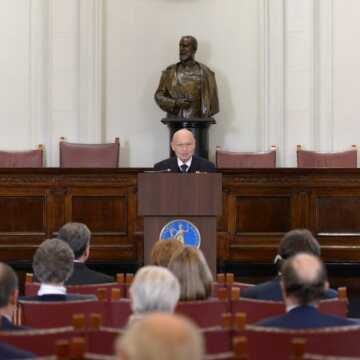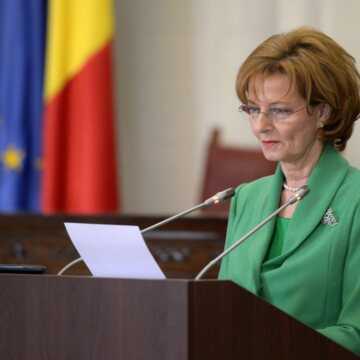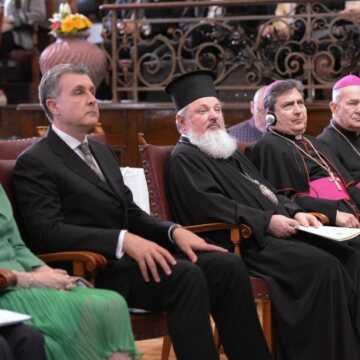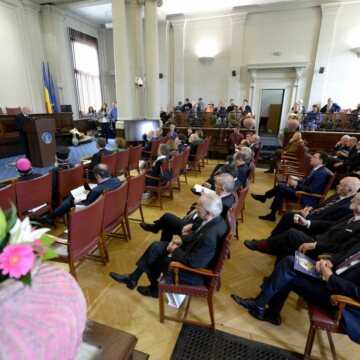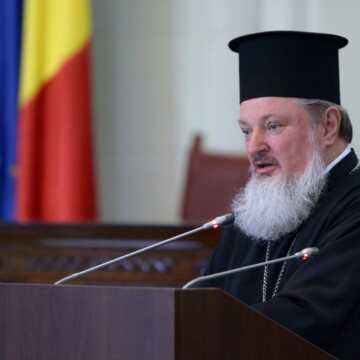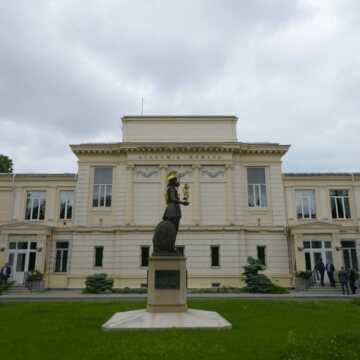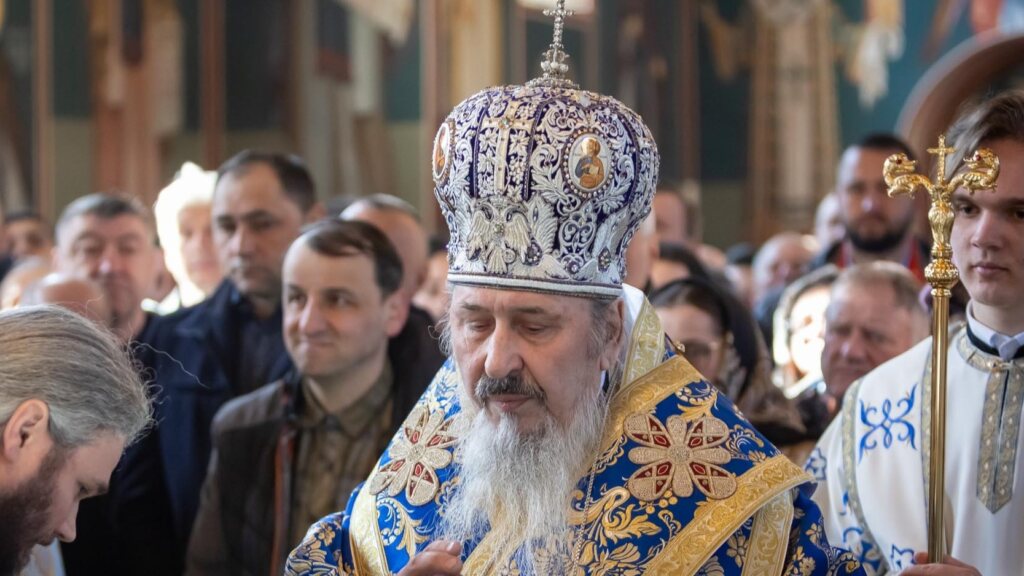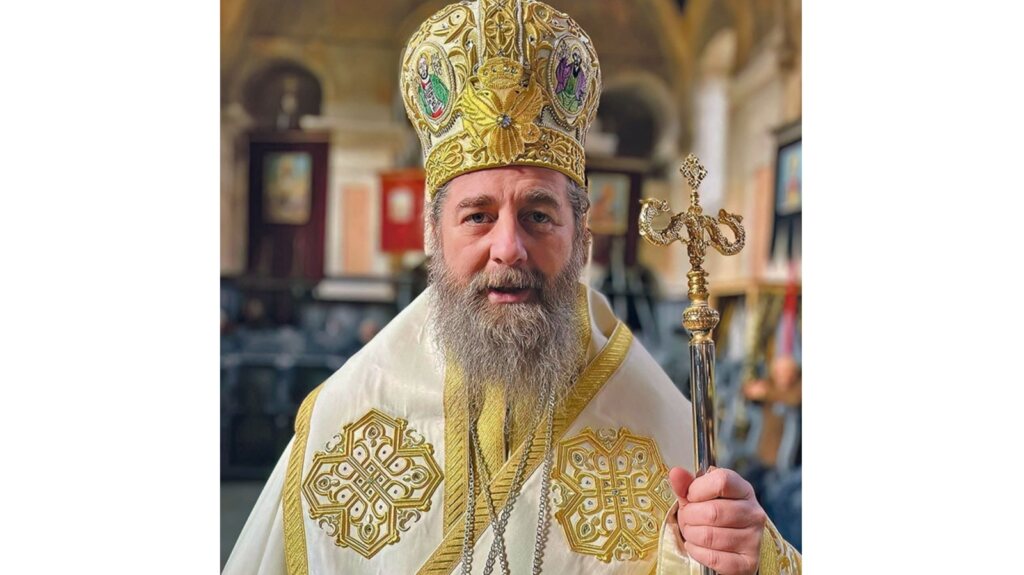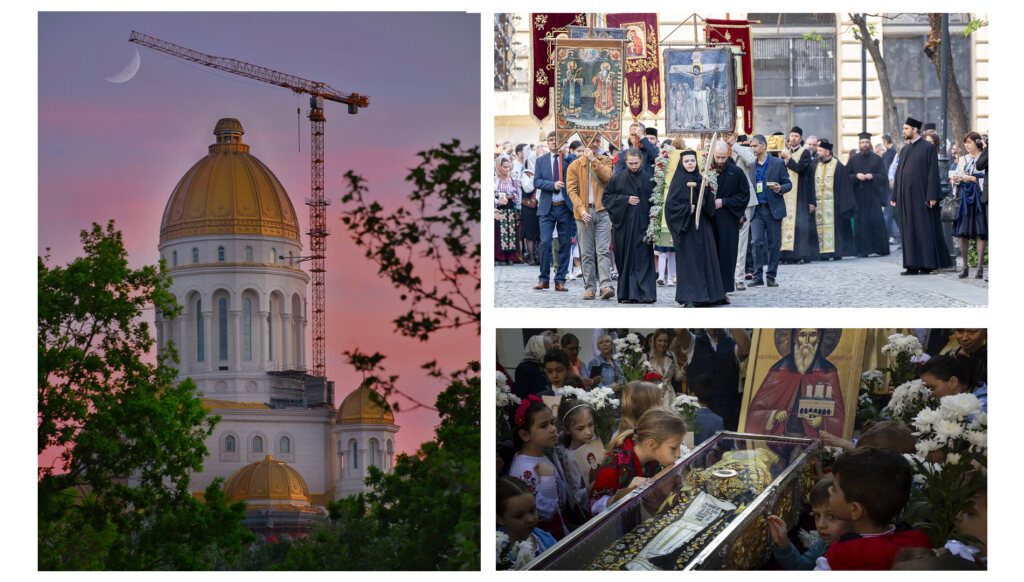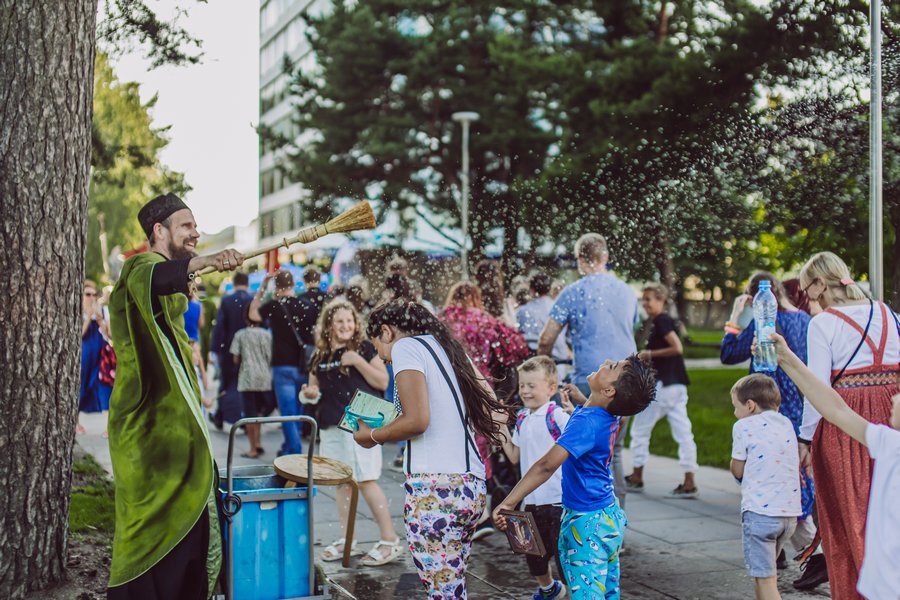Monday, 9 May 2016, the solemn session entitled “Ruler Prince Carol I – 150 years since his ascending the throne of Romania” was held at the Romanian Academy. The delegate of His Beatitude Patriarch Daniel to this event was His Grace Varlaam Ploieşteanul, Assistant Bishop to the Patriarch.
Academician Ionel-Valentin Vlad, President of the Academy, Her Royal Highness Princess Margareta, Custodian of the Romanian Crown, Academician Dan Berindei, Honorary President of the Department for Historical Science and Archaeology, Univ. Prof. Dr. Mircea Dumitru, Rector of the University of Bucharest, Academician Ioan-Aurel Pop, Rector of Babeş-Bolyai University of Cluj-Napoca, Prof. Victor Axinciuc, Honorary Member of the Romanian Academy delivered speeches.
The opening speech was delivered by the President of the institution, Academician Ionel-Valentin Vlad, who said that King Carol I was a protector of the Academy.
“King Carol I was very interested in the activity of the Romanian Academy, supported it morally and materially, fully aware that the prosperity of the country could be ensured only by forming and recognising the cultural elite. Many of his close counsellors were members of the high academic forum. Although he had an overloaded programme, King Carol I could always have time to attend the meetings of the Romanian Academy which debated issues related to the Romanian language, Romanians’ history and science, or presented speeches of reception on various aspects of culture”.
Princess Margareta of Romania underlined that: “We cannot write the history of modern Romania without the Royal Crown”.
“Modern Romania is a historical achievement belonging to all of us. It was possible through the sacrifice of the millions of Romanians of the past generations who gave their lives to realise and consolidate the national independence. But nobody can write the history of Romania without the Romanian Crown. Both of them are deeply connected in their identity. The constitutional monarchy brought stability and continuity to Romania. If King Carol were with us today, he would be proud of what we achieved”.
The Patriarch of Romania transmitted a message to this solemn session presented by His Grace Varlaam Ploieşteanul, Assistant Bishop to the Patriarch, of which we render two fragments below (the complete message can be read here).
“Having been a practicing Christian interested in the salvation of the soul, he sacrificed important amounts from his personal income or from that of the Crown for building and restoring altars. One proof in this sense is the text engraved in marble at the Metropolitan Cathedral in Iaşi, where King Carol I has become founder of the place of worship together with the great and worthy metropolitans Veniamin Costachi and Iosif Naniescu”.
King Carol I has also sustained the construction of a National Cathedral, His Beatitude underlined.
“After proclaiming Romania as kingdom in 1881, King Carol I conceived an extensive plan for modernising the country and its institutions. The construction of a national cathedral held a central place within this plan. This can be seen in the fact that some of the first bills submitted to the legislative bodies in the session 1881-1882, according to the desire of King Carol I, included: Bill for setting up public buildings and constructions, and Bill for building a Romanian cathedral in the capital city of the country”.
According to the Rector of the University of Bucharest, Mr Mircea Dumitru, King Carol I supported the development of the Romanian education.
“Although there had been a law of public instruction ever since 1864, that did no longer serve the social needs, the aspirations of the school and of the studious young people. The King noticed, in the legislative context settled by the constitution, the necessary reconstruction of the Romanian educational system by defining a modern, well-balanced view on school, on the social role and dignity of the teacher, as well as of the modernisation and progress of the country through education and culture. The personality who would prove all the qualities necessary for implementing this view was Spiru Haret, the great creator of the national school and of the Romanian education. Certainly, the success of this process of reformation of the educational institutions was facilitated by the fact that there was a direct communication and relationship based on confidence between King Carol I and Spiru Haret. The legislative reforms associated to the early educational changes were constituted in several laws which contributed to the coherent construction of the new reform in which the conservation of the cultural and educational frame associated with the birth of the formation of the modern Romania was a must”.
King Carol I had been honorary member of the Romanian Academy since 1867, and from 1879-1914 he was protector and honorary president of the institution.

